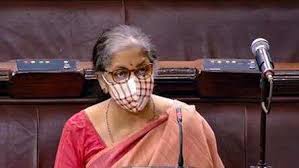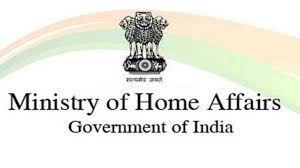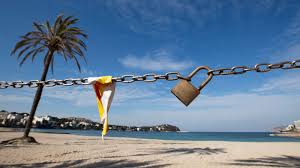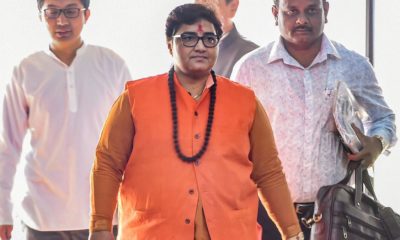Feature
My husband not Lalit Modi’s lawyer in passport case: Sushma

New Delhi: External Affairs Minister Sushma Swaraj on Wednesday said her husband Swaraj Kaushal was not the lawyer for former IPL chief Lalit Modi in his passport case and she was not at fault in the issuance of travel documents to him by the British government.
“I am saying again today that there is no mistake by me,” she said while participating in a debate in the Lok Sabha on an adjournment motion on the Lalit Modi issue.
The minister said the British government had conveyed that Lalit Modi was given travel documents according to appropriate rules.
Sushma Swaraj said her daughter Bansuri was a junior lawyer in Lalit Modi’s passport case but received no money.
“She was a junior at ninth number in the appearance list. She appeared with her senior. Not a single rupee was taken (by her),” Sushma Swaraj said, amid continuous slogan-shouting by Congress members.
She rejected the Congress allegations of a quid pro quo with Lalit Modi.
Sushma Swaraj, who earlier spoke in the house, reiterated she did not help Lalit Modi but his wife who was to undergo a medical procedure for cancer treatment in Portugal.
The minister hit out at the Congress over its allegations on her conflict of interest.
She said when P. Chidambaram was finance minister in the United Progressive Alliance government, his wife Nalini Chidambaram was appointed a lawyer by the income tax department.
She said when an AIADMK member brought this to the notice of parliament, Chidambaram said he had no knowledge of the department’s decision.
Sushma Swaraj also cited other instances of alleged conflict of interest by Congress leaders.
The Congress is demanding the resignation of Sushma Swaraj over her alleged help to former Indian Premier League chief Lalit Modi, who is facing investigation by the Enforcement Directorate.
Entertainment
Meghalaya Reserves Legalized Gambling and Sports Betting for Tourists

The State Scores Extra High on Gaming-Friendly Industry Index
Meghalaya scored 92.85 out of 100 possible points in a Gaming Industry Index and proved to be India’s most gaming-friendly state following its recent profound legislation changes over the field allowing land-based and online gaming, including games of chance, under a licensing regime.
The index by the UK India Business Council (UKIBC) uses a scale of 0 to 100 to measure the level of legalisation on gambling and betting achieved by a state based on the scores over a set of seven different games – lottery, horse racing, betting on sports, poker, rummy, casino and fantasy sports
Starting from February last year, Meghalaya became the third state in India’s northeast to legalise gambling and betting after Sikkim and Nagaland. After consultations with the UKIBC, the state proceeded with the adoption of the Meghalaya Regulation of Gaming Act, 2021 and the nullification of the Meghalaya Prevention of Gambling Act, 1970. Subsequently in December, the Meghalaya Regulation of Gaming Rules, 2021 were notified and came into force.
All for the Tourists
The move to legalise and license various forms of offline and online betting and gambling in Meghalaya is aimed at boosting tourism and creating jobs, and altogether raising taxation revenues for the northeastern state. At the same time, the opportunities to bet and gamble legally will be reserved only for tourists and visitors.
“We came out with a Gaming Act and subsequently framed the Regulation of Gaming Rules, 2021. The government will accordingly issue licenses to operate games of skill and chance, both online and offline,” said James P. K. Sangma, Meghalaya State Law and Taxation Minister speaking in the capital city of Shillong. “But the legalized gambling and gaming will only be for tourists and not residents of Meghalaya,” he continued.
To be allowed to play, tourists and people visiting the state for work or business purposes will have to prove their non-resident status by presenting appropriate documents, in a process similar to a bank KYC (Know Your Customer) procedure.
Meghalaya Reaches Out to a Vast Market
With 140 millions of people in India estimated to bet regularly on sports, and a total of 370 million desi bettors around prominent sporting events, as per data from one of the latest reports by Esse N Videri, Meghalaya is set to reach out and take a piece of a vast market.
Estimates on the financial value of India’s sports betting market, combined across all types of offline channels and online sports and cricket predictions and betting platforms, speak about amounts between $130 and $150 billion (roughly between ₹9.7 and ₹11.5 lakh crore).
Andhra Pradesh, Telangana and Delhi are shown to deliver the highest number of bettors and Meghalaya can count on substantial tourists flow from their betting circles. The sports betting communities of Karnataka, Maharashtra, Uttar Pradesh and Haryana are also not to be underestimated.
Among the sports, cricket is most popular, registering 68 percent of the total bet count analyzed by Esse N Videri. Football takes second position with 11 percent of the bets, followed by betting on FIFA at 7 percent and on eCricket at 5 percent. The last position in the Top 5 of popular sports for betting in India is taken by tennis with 3 percent of the bet count.
Local Citizens will Still have Their Teer Betting
Meghalaya residents will still be permitted to participate in teer betting over arrow-shooting results. Teer is a traditional method of gambling, somewhat similar to a lottery draw, and held under the rules of the Meghalaya Regulation of the Game of Arrow Shooting and the Sale of Teer Tickets Act, 2018.
Teer includes bettors wagering on the number of arrows that reach the target which is placed about 50 meters away from a team of 20 archers positioned in a semicircle.
The archers shoot volleys of arrows at the target for ten minutes, and players place their bets choosing a number between 0 and 99 trying to guess the last two digits of the number of arrows that successfully pierce the target.
If, for example, the number of hits is 256, anyone who has bet on 56 wins an amount eight times bigger than their wager.























